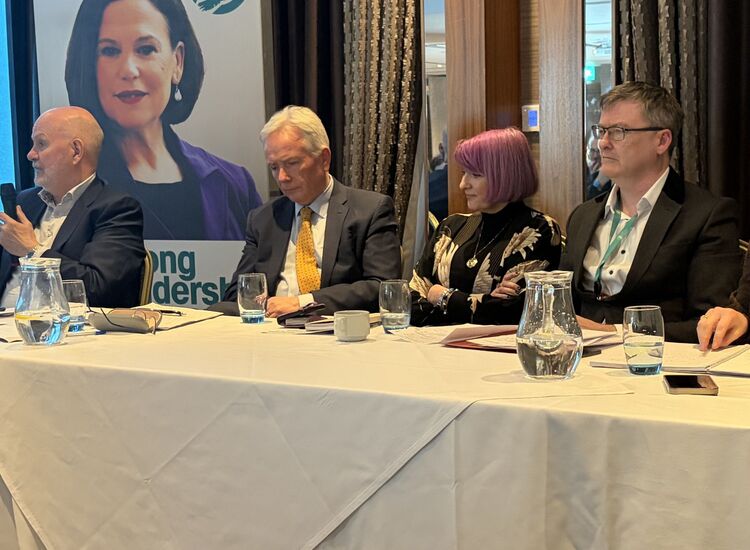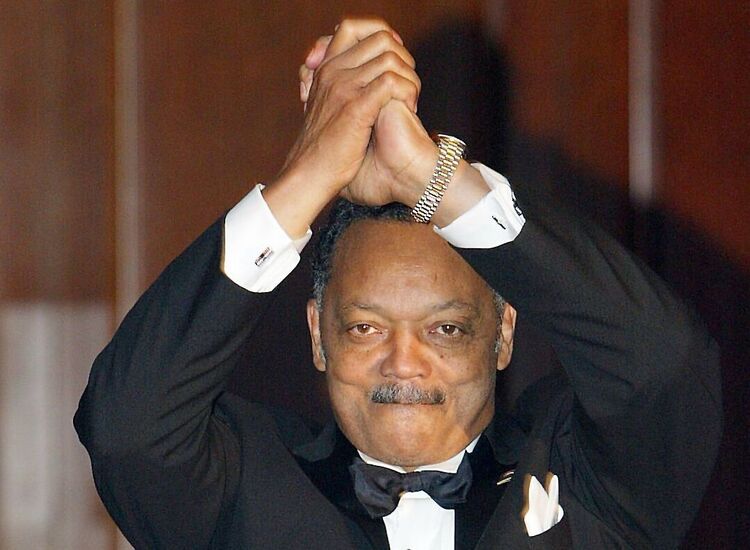Fan Eva Murphy wrote her tribute to singer David Bowie in Grand Social in Dublin on Monday evening. PHOTOCALL
By Colleen Taylor
This week, the world mourned the one and only David Bowie. What has become clear within the past couple days is how much the great cultural innovator meant to the Irish public. As writers and fans vocalized this week, bold strides in modern Irish art and music within the past few decades owe a debt to Bowie’s inspiring brassness. When the globe gathered to commemorate the late, great star, Ireland stood at the front of the procession line. Here are a few reflections on how the Irish are remembering Bowie and what legacies he’s left behind for the nation’s artists today.
Just one day after the news of the singer’s passing, Dublin quickly organized a full-scale, two-day Bowie tribute festival featuring Ireland’s Bowie band, Rebel Rebel. The group is a six-piece tribute band who each have their own career in the music industry outside the cover band. But when their icon passed away, Rebel Rebel quickly assembled into musical action. They played all Bowie’s greatest hits for a large Dublin audience, from the Thin White Duke days to the final Ziggy set. Lead singer Peter Quinn, a vocal twin of Bowie, stood at center stage. The band has been treating Ireland to Bowie’s best since 2010, and they played a packed house at the Grand Social on Jan. 9 and 10, remembering their hero with two quintessential fun, eccentric shows. These two nights were arguably the most momentous in Rebel Rebel history, as Gerry Leonard—the real McCoy—joined them onstage.
Leonard, who hails from Clontarf, was Bowie’s guitarist and musical director. He worked with Bowie on his albums, “Heathen,” “Reality,” and “The Next Day,” and played with him on the corresponding tours. Bowie appreciated Leonard’s ghostly, ambient guitar sounds, and that very quality marks Leonard’s own career as solo artist Spooky Ghost, a name he took from the Irish “ceol na phúca,” meaning ghost music. Spooky Ghost/Leonard released three solo albums from 1998 to 2004. Leonard has also worked in the Irish folk music scene as well, specifically with Susan McKeown on her albums. Together, Leonard and McKeown play under the name Bowsie and explore old songs through the inflection of Leonard’s characteristic soundscapes.
Earlier this week, Leonard took the stage in Dublin for the commemorative Bowie Festival. He not only played onstage but answered questions about his time with Bowie in an open Q&A. The Dublin Bowie Festival also included a memorabilia market, documentary screenings, and karaoke for fans, or “Bowieoke.” Festival organizers are hinting at making the Bowie Festival an annual event, and planning an even bigger celebration in honor of his 70th birthday next year.
Irish publications saw an outpouring from fans this week. People wrote into the Irish Times, reflecting on Bowie’s surprise show in 1991 at the Baggot Inn, his headlining tour at Slane Castle in the 1980s, and various other shows he played in Ireland. Among those who emphasized Bowie’s inspiration as an artist were some of the nation’s most renowned writers, including Joseph O’Connor, Roddy Doyle, Edna O’Brien, and Eimear McBride. O’Connor compared him to Yeats in his ability to self-innovate. McBride said he was extraordinary in his ability to be both “revolutionary and evolutionary.” Most poignantly, Edna O’Brien simply said, “He transcended age, fashion and crass celebrity.”
Perhaps the biggest Irish rock band of all time, U2, would not have made it without Bowie. The band credits him for their album “Achtung Baby.” Creatively stagnated in the early 1990s, the band traveled to Hansa Studios in Berlin, just as their hero Bowie did years before, when he himself sought a new inspiration. The resultant U2 album has traces of Bowie all over it. Perhaps Bono articulated Bowie’s impact on Irish culture best: “What Elvis meant to America, Bowie meant to Britain and Ireland.”
One of David Bowie’s last projects involved a partnership with Irish playwright Enda O’Brien. Together the writer and musician produced a musical, “Lazarus,” an adaptation from the 1963 sci-fi film “The Man Who Fell From Earth.” The show, which premiered off-Broadway this winter and ran throughout November and December, involves new music from Bowie (also featured on his last album, “Blackstar”). Due to rave reviews and unprecedented demand, “Lazarus” recently scheduled three encore performances for January 18-20. Tickets are available through the New York Theatre Workshop, nytw.org.
Bowie’s producer recently confirmed that the singer intended his final album, “Blackstar,” to be a farewell to his fans. His official music video for the single “Lazarus” (featured in the musical of the same name by Bowie and Walsh) has just been released, and it is moving fans everywhere. Critics have given the video and the album as a whole astounding reviews. David Bowie’s echoes are reverberating throughout the cultural consciousness, and indeed, throughout all our headphones.
But Bowie isn’t really gone—not in Ireland, anyway. He lives on in SOAK’s refusal to conform to cultural norms, in Imelda May’s bold rock flare, in U2’s Bowie-inspired album, “Achtung Baby,” in Hozier’s transnational appeal, and most recently in the Bowie-Walsh play “Lazarus.” It goes without saying for all fans of good, fresh music—go raibh míle maith agat, Bowie.










